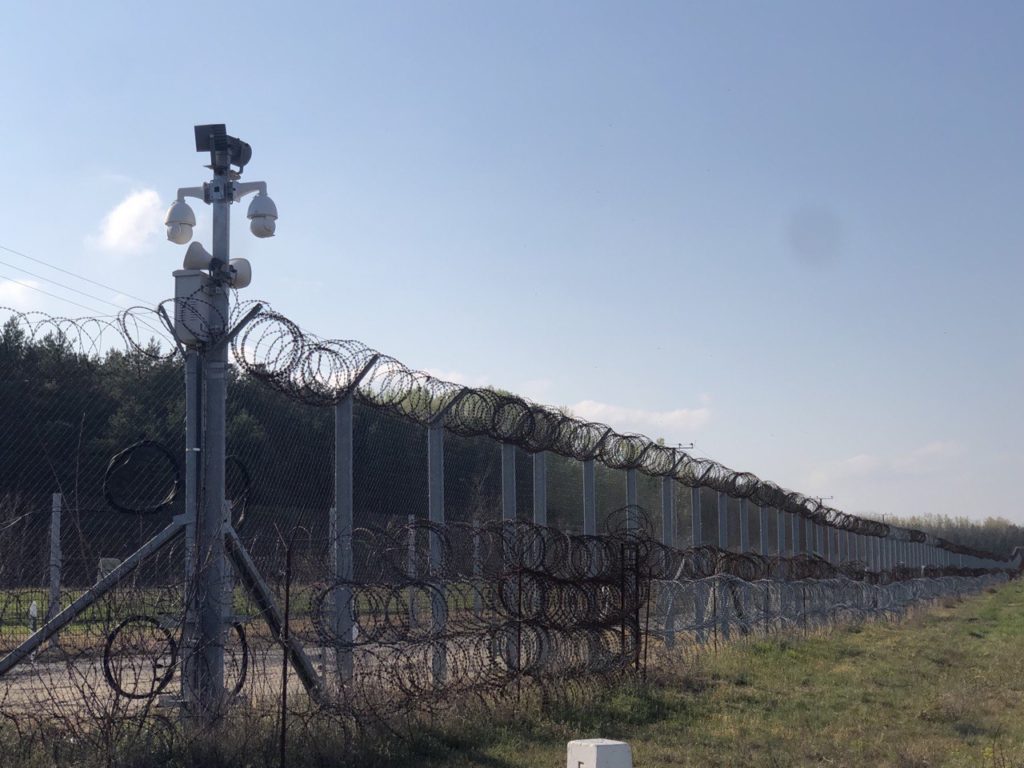Razor-wire fences and naval blockades. Pushbacks on land and at sea. Physical punishment by border guards, militia forces and vigilante groups. Detention without trial and confinement to squalid camps. Deportation deals with states that abuse human rights.
These are just a few of the methods that European states are employing to obstruct and deter the arrival of refugees, asylum seekers and migrants from other parts of the world. As a result, people who are on the move and hoping to find security in the region are subjected to many different forms of inhumane and cruel treatment, in many cases violating the international and European human rights treaties that states have freely signed.
The harsh policies pursued by European states towards new arrivals from other parts of the world are the result of several different considerations. There is a sense within the continent that migration is out of control, and that it represents a threat to the security, social cohesion and public services of destination countries. Populist politicians and the mass media have been only too keen to provoke such negative sentiments. Particular anxiety has been generated by the arrival of foreign nationals who travel without the requisite travel documents, who claim asylum in Europe and remain there, even if their application for refugee status has been rejected.
Such concerns should not be dismissed out of hand. Migration clearly does generate social and cultural change and requires states to invest in the structures and procedures needed to receive the new arrivals and support their effective settlement. Limited resources such as housing can come under pressure as a result of refugee and migratory movements, especially when large numbers of people arrive unexpectedly and in a short period of time.
But these considerations do not justify the cruel and callous methods that European states have adopted in their increasingly intensive efforts to exclude refugees and other migrants from the continent.
First, there is ample evidence that the people who move to Europe from other parts of the world have a dynamic impact on the societies in which they settle. They fill important gaps in the labour market, and help to address the problems associated with Europe’s ageing and in some cases diminishing population. They bring new skills and qualifications with them, establishing enterprises that contribute to economic growth and provide other members of society with new livelihood opportunities. Their contribution to European culture, learning, sport and cuisine is incontestable.
Second, the states of Europe have hitherto played a central role in the establishment of international human rights, humanitarian and refugee law, recognizing the need to protect the lives and liberty of people who are threatened with persecution, annihilation or destitution. In ratifying such legal instruments, these countries have also acknowledged the need for the movement of people across borders to be addressed in a cooperative manner, and in a way that requires the most prosperous parts of the world to assume a fair share of responsibility for people who have been obliged to leave their own country.
The inhumane methods currently being used to exclude new arrivals from Europe are not consistent with these principles. Nor do they recognize that as a result of their history and contemporary policies, European states have contributed (and continue to contribute) to the political, economic and environmental conditions that drive displacement in the Global South.
Third, the cruel methods of ‘migration management’ employed by European states are both self-defeating and unnecessary. Self-defeating in the sense that by closing their doors so firmly to people who have felt compelled to leave their homeland, they have actually contributed to the expansion of irregular migratory movements that rely on the activities of unscrupulous human smugglers and corrupt government officials.
And unnecessary in the sense that alternative, less cruel and more constructive approaches can be taken to address the refugee and migration issue. This is the founding principle of a new campaign titled ‘Stop the inhumanity at Europe’s borders!’. Supported by more than 70 civil society associations and NGOs throughout the continent, the campaign confronts European governments and the EU with a set of specific demands.
There must be an immediate halt to the border closures and push-backs that are currently taking place at land and on sea in Europe, and an end to the strategy that seeks to curb the movement of people by obliging them to make use of treacherous routes and means of transport. ‘Deterrence by death’ has no place in contemporary Europe.

While the campaign recognizes that states wish to control the movement of people onto their territory, it believes that this objective can be attained in ways that are humane, are based on due process and are consistent with international law. In situations where new arrivals are punished or penalized by states, they and their families must be able to seek legal redress and financial compensation from the relevant authorities.
The campaign contends that safe routes are urgently required to avert the need for people to embark on difficult and dangerous journeys to Europe. This demand will require states to establish expanded programmes for refugee resettlement, relocation and evacuation, as well as family reunion, labour migration and scholarship initiatives.
Our expectations of these programmes must be realistic. They are unlikely to provide a quick, easy or complete solution to the issue of irregular migration, especially if they are established on a small scale and are targeted only at people originating from countries that are of particular interest to European states. But they would certainly save lives, reduce the hardship experienced by people on the move and enable governments in the most prosperous region of the world to assume an equitable degree of responsibility for people who have been obliged to leave their own country.
The last of these objectives could also be served if European states were to call a halt to the process of externalization, whereby poorer and less powerful countries in the Global South are offered financial and other inducements to obstruct the movement of refugees and other migrants who might make their way to Europe. Similarly, the campaign is firmly opposed to any deals that involve the deportation of new arrivals to underdeveloped and authoritarian states in other parts of the world..
Finally, the inhumanity inflicted on people at Europe’s frontiers must be brought to an end by a fundamental reform of Frontex, the militarized EU border control agency which has in recent years expanded tremendously in terms of its budget, range of responsibilities and technological capacity. Rather than promoting the values of democracy and tolerance on which the EU is supposedly based, Frontex has become an unaccountable behemoth that routinely violates the rights of people who are in search of greater safety and security than they can find at home.
While the inhumane border control policies currently employed by European states must be brought to an early end, there is also a need for alternative and more constructive approaches to be discussed at the national, regional and global levels. That was ostensibly the objective of the international community when, five years ago, it established two Global Compacts, one on refugees and the other on migration.
But these agreements are weak on key protection issues such as the right to seek asylum, externalization and rescue at sea. They are also non-binding, allowing states to endorse the Compacts at high-profile meetings in Geneva and New York, while routinely ignoring their provisions in daily practice.
There is consequently a need for a renewed conversation in relation to the question of cross-border population movements, an issue that seems certain to remain at the top of the political agenda in Europe and the rest of the world, given the growing incidence and combined effects of persecution, armed conflict, ideological extremism and climate change. Short-term responses that simply seek to exclude refugees and other migrants by inhumane means must be replaced by approaches that respect the rights of people who are on the move and maximize the contribution that they can make to society.
Details of the campaign Stop the inhumanity at Europe’s borders! can be found at https://www.against-inhumanity.org/campaigns/stop-the-inhumanity-at-europes-borders/
Jeff Crisp is a member of United Against Inhumanity and was formerly Head of UNHCR’s Policy Development and Evaluation Service.











